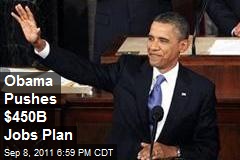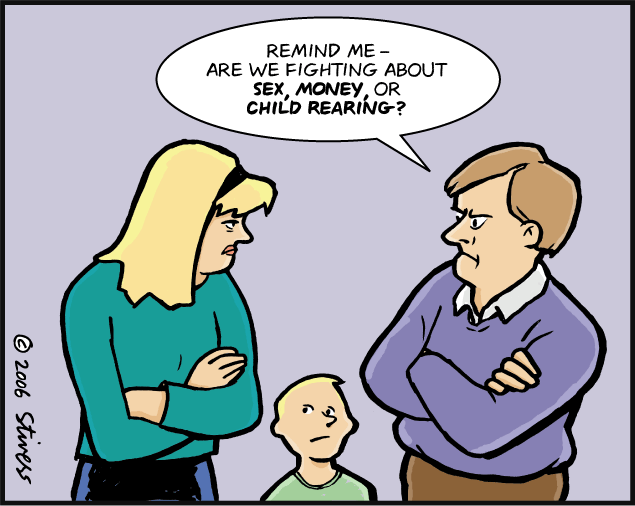The first time I got hired to be a manager, I thought, "Well, I'm the boss. I guess that means I'm supposed to boss-around my supervisees." (A liberal arts education didn't include the art of supervising.) No surprise, I got "laid off."
We're a lookist society. It seems that half of how we're judged is our appearance. If you choose to appear fringey or grungy, you'll be leading with one strike against you. Rule: dress one notch dressier than employees at your level, two notches dressier than your supervisees. So if your supervisees wear casual shirts and pants and your fellow managers wear nicer shirts and pants, you wear a sport jacket, no tie.
A boss's most important job is something she unfortunately often can't do: hire her supervisees. Usually, they're in place and can't easily be terminated. Study after study finds that hiring wisely is critical. That's not surprising: It's hard to turn a lazy employee into a hard worker, a dullard into a genius, a technophobe into a supergeek. Jim Collins, author of
wrote, "Great managers get the right people on the bus and the wrong people off before figuring out where to drive it." So, the rule is: hire slow, fire fast.
Let everyone you respect know you're looking to hire. The best hires usually come from referral--your friends and colleagues are likely to refer only truly good people, not bad employees who respond to want ads with a primped-up resume, highly coached interview skills, and shill references so they look better than they are.
Your selection process should focus on simulations: having the applicants do bits of the kind of work they'd do on the job. And better to hire an inexperienced, smart, kind hard worker than an experienced person with lackluster intelligence and drive.
Spend only a short time trying to improve a weak supervisee's performance. Even psychotherapists, working one-on-one with patients for years, have a hard time fundamentally changing them. You're unlikely to do better. So if after a brief effort to improve a weak employee, you see little progress and you have the power, cut your losses. Where possible, rather than use a legalistic approach to termination, counsel them out: Point out that their strengths aren't best utilized in this job and that you'd like to help the person find a better-suited position.
The power to inspire is under your control. Workers are far more motivated if they believe in the mission and in you. Even if your supervisees' jobs are as mundane as payroll clerk, you can legitimately assert that their jobs are crucial. I'd tell them, "Our job is to make sure that the company employees and their families get all the money they deserve and that the company is not unfairly shortchanged. Very important."
Even more potentially inspiring: your behavior. If you present your supervisees with a wise strategy, work hard and ethically, focus on solutions not complaining, prioritize improving the company not aggrandizing yourself, you'll inspire most of your supervisees. Those that remain insufficiently productive should, if possible, be victims of Fire Fast or at least moved where they'll do the least harm.
Mold the job to your strengths. Some of your job description is limited by your boss and by your workgroup's needs but often you can structure your job to spend more time using your strengths and little using your weaknesses. Where possible, delegate tasks that would expose your limitations.
My wife is an education administrator. Most people in her position focus on managing people and doing budgets. But she remolded her job description to minimize those and maximize the things she's best at: giving speeches, doing demonstration lessons for teachers, appearing in the media, and solving people problems, for example, with the teacher's union, parents threatening to sue, etc. The result: she won, over 100 other candidates, her region's Schools Superintendent of the Year Award, Congressional Woman of the Year, and in 2014, the Best Public Advocate Award from the International Society for Technology in Education. .
Which are you strong and weak at: Strategy? Tactics? Budgeting? Organization? Coaching employees one-on-one? Leading workshops? Developing efficient procedures? Resolving people problems? Resolving technical problems? Public speaking? Running meetings? Hiring? Firing? Collaborative decision making? Solo decisive decision-making? Can you adapt your job description to fit?
Be strategic. Many managers have the opportunity to create strategy. My favorite approach to setting strategy is:
1. Lead a meeting with your supervisees in which you brainstorm the relevant strengths, weaknesses, opportunities, and threats.
2. Take their input back to your desk and develop a draft strategic plan.
3. Share it with the group and revise it based on their input.
4. Inspire your workers to implement the strategic plan, usually including measurable goals for which your workers are accountable, praised, celebrated, and perhaps financially rewarded when accomplished.
5. When goals aren't met, address the problem promptly, candidly, and crisply while, where possible, preserving workers' self-esteem.
Delegate. If you do it all yourself, you'll likely not only to work too long hours, your workers will feel disempowered. Sure, do the things you're good at and enjoy doing but delegate where appropriate, even if you could do it better yourself. Sometimes good
is good enough. Indeed, the perfect can be the enemy of the good.
Treat your supervisees not equally, but fairly. Management isn't one-size-fits-all. Some workers need close supervision while others are most productive with maximum freedom. Some workers are motivated mainly by praise, others by fear, others by chats about their family, still others by increasing their responsibilities. Some employees can take lots of candid feedback; others would shut down.
Be only mildly nice. If you're too effusive, you can generate complacency in your workers. A small measure of fear doesn't hurt. Also, by withholding your kindest self, when a supervisee does something good and then you're very nice, he'll appreciate it and be positively reinforced by it, whereas if that's your normal behavior, it will more likely be shrugged off as business-as-usual.
You can more often get what you want if you don't insist on getting credit. For example, when I was president of a theatre's board, I developed a plan to capture audience members' emails. A small part of my plan was something another board member had come up with. So when I presented my idea to the board, I said, "Susan suggested a way to capture emails. I built on it and here it is. What do you think?" I believe that my giving her as much credit as possible helped it get adopted and contributed to my being perceived as someone more interested in getting things done than in self-aggrandizement.
Create an atmosphere of candor. Praise people for disclosing significant problems, chastise them for withholding key information. Candor is key--when it's an important problem. Sometimes, small problems and weaknesses are best ignored. They and you must wisely decide which battles are worth fighting.
Run crisp meetings. Meetings can be time sucks. Only call a meeting when an email to your staff won't do--for example, when you want real-time brainstorming or you're trying to build staff morale (Hint: Serve food. It lubricates conversation.)
Send the agenda in advance; ask for input. Start on time, keep to the agenda, and the time limit. Best time for a meeting: right before lunch: people will want to get out on time.
Let others talk. For most of the meeting, your main job usually is to listen carefully, ask clarifying questions, keep one person from dominating or being unduly negative, and encouraging quiet people to contribute.
The best time for you to have your say is after they've all had theirs. At the end of an agenda item, you'll often want to make a concluding statement such as, "In light of John's statement X, Mary's statement Y, and Jose's statement Z, we're going to do Q."
Embrace and win at office politics. When I was young, I thought, "I'll ignore office politics. I want to succeed on the merits." Mistake. In many workplaces, especially in tough times, some workers will stab others in the back, withhold information to gain power, and otherwise sabotage them.
An ounce of prevention is worth a pound of cure: Practice positive politics:
- Make the effort to be at least moderately liked by all while staying out of the gossip vine.
- Take the time to develop relationships with key people. Periodically ask them, "Is there anything I can do to make your life easier?"
- When you want to propose something, see if you can get the right people on board before formally proposing it--even if you have to share the credit.
- If you're sabotaged, privately warn the offender that if it happens again, you'll report it.
Do those things and chances are you'll be a respected perhaps even beloved boss.
 Here's why I believe the era of the book, especially the how-to/self-help book, even in e-book format, is dying faster even than most people think:
Here's why I believe the era of the book, especially the how-to/self-help book, even in e-book format, is dying faster even than most people think:
















